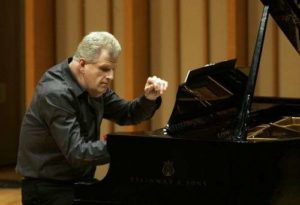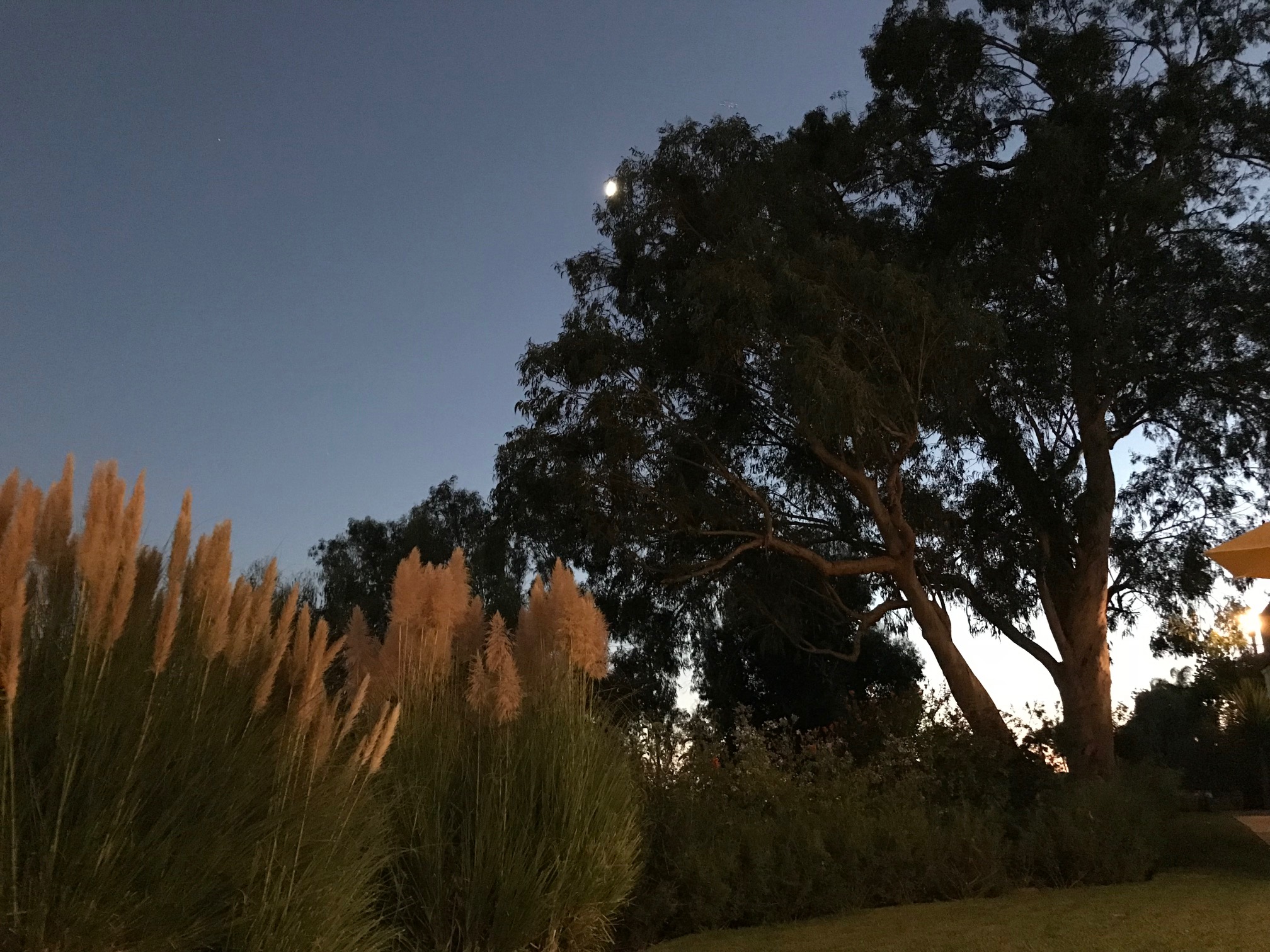There is probably no pianist still breathing who hasn’t been fascinated (and perhaps frustrated) by the 1915 Études of Claude Debussy. It’s a foundational suite in several senses. Students of the instrument may initially approach them (or at least the first couple pages of the first) anticipating a witty and scintillating take on the technical exercise studies of Czerny and Cramer that every student of classical piano takes up at one point or another. (The first is subtitled (Pour les “cinq doigts,” d’après M. Czerny.) A number of pianist-composers through the 19th and into the 20th centuries took spirited revenge at this constant bane of the classical piano student. Chopin’s own celebrated Études are the epitome of the form—technical exercises elaborated into brilliant concert show pieces. Debussy’s unfold from a different place and mood—foundational certainly; but technically daunting (crushing for the less accomplished!) flights into a compositional and harmonic domain entirely Debussy’s own, and anticipating flights yet to come through the 20th century and into the 21st—which is where pianist Mark Robson has picked up the thread.
Robson’s idea for his Debussy Project concerts was to take the Debussy Études and, starting from a fresh re-examination (a ‘read-through’ as only a pianist of Robson’s virtuosity can deliver it), propose to 11 of his pianist-composer colleagues, a re-examination and re-working of Debussy’s harmonic, modal, melodic, thematic ideas through their own fresh variations and reimagining.
The resulting variations, ‘chords’, ‘nocturnes’, ‘calligrammes’, ‘confidences’, and, well, études, are as intriguing, probing, brilliant, and sheerly entertaining as one might expect, given the company Robson keeps: e.g., Vicki Ray (herself a local legend amongst contemporary pianist-composers), Thomas Kotcheff, Karl Kohn (on familiar turf in this domain), Nick Norton and Anne LeBaron (of Crescent City fame, among other works for voice and instrumental ensemble).
Robson also treated the audience (I was in the last audience for this concert at the Villa Aurora) to an introduction to these fresh departures, as well as re-introduction to the original Debussy Études that beautifully contextualized the work in the contemporary moment. 2018 marks the centenary of Debussy’s death; but the context Robson addressed here—and this was all about context (as opposed to the much-abused term, ‘concept’)—is much larger than simply a date, the end of one era or beginning of the next. Robson addressed the period of Debussy’s life in which the Études were written: he was dying (or soon to be dying) from cancer. He withdrew to an oceanside retreat in Normandy for his fresh take on so many of the ideas he had already developed through his career. (Water and nature were always inspirations for Debussy—and one of the treatments here makes reference to that fascination.) It was also, historically, the climax and culmination of World War I, which took so many French lives (and not very far from the place where he was composing). He was surrounded by death in a moment he was reimagining a musical ‘birth’—his own and ideas that would take 20th century music far beyond it.
All of this is tremendously resonant in a moment when both human civilization and all of nature seem to hang in the balance. We’re returning to foundations and fundamentals; starting over.
Some of the freshly commissioned works involved preparation or special handling of the piano, minor electronica, or even a second piano or voice (on this evening, Robson had to fill the shoes of his original second pianist, Vicki Ray). Daniel Rothman’s Calligramme acoustique: hommage à Apollinaire (effectively a double-homage) required an altered ‘E’ with a 12th interval resonance—but went far beyond the ‘after-Czerny’ five-finger template to continue building double and triple harmonic layers. Juhi Bansal’s offering, inspired by the 8th étude, went far beyond Debussy’s intended ‘ornamental’ parameters to build hypnotic ostinatos of chords modulating up and down the scales. It could be said that the original goes well beyond the ‘intended’ scope, too; but this was just gorgeous. Nick Norton, too, went beyond Debussy’s notional repeated notes and figures (from the 9th étude) in an Étude avant l’arrêt du temps originally arranged for Robson and a second piano ideally to be played by Vicki Ray, to plunge into the modal harmonic and seemingly rhythmically expressed temporal leaps of the Debussy to build a something closer to a cathédrale engloutie.
The Debussy 10th is where we have a real sense of that ‘engloutie’—already pushing that envelope of harmonic abstraction (with its deliberately opposed sonorities). Here Anne LeBaron has simultaneously complicated and streamlined that harmonic conversation by way of the human voice—the soloist’s own and an ‘interlocutor’ (voiced by Lynda Sue Marks-Guarnieri), who engaged Robson at intervals with a kind of Proust Questionnaire. Robson played—and sang—his responses and declarations with an air of surprise, serendipity, and occasionally irony (his favorite writers being Poe, Baudelaire and Flaubert). It played off as a kind of restatement of the Debussy mission (as if voiced by Debussy himself), seemingly restating musical ideas that morphed in others’ hands (e.g., Ravel, Chabrier, and later Stravinsky, Milhaud, etc.).
Robson’s own variation (on Étude 7), Les débris d’un rêve, featured an electronic track, and between the recorded track and the piano swept up many of these ideas between glissandos, raspy inhalations and exhalations, swelling, tenebrous chords and bass notes, trills that were like glassware shaking on a table in an earthquake (and a hint of the Jeux—and maybe even a sidelong wink at Ravel’s Jeux d’eau). Robson used the track to enhance those hints and echoes, effectively creating a sense of spatial zones—foreground, middle-ground background.
The final ‘trio’ of fresh commissions brought us back to that familiar watery domain with Sarah Gibson’s Our eyes once watered (after the second ‘thirds’ étude), though there were plenty of fifths and octaves in this treatment, and ethereal gong and gamelan harmonics. Robert Gates’ Water Music was as richly arpeggiated and romantic as its 11th étude template, evoking something of the Giverny nymphéas of Debussy’s visual contemporary, Monet. The evening came to a fitting climax with Vicki Ray’s brilliant update on the 12th Étude, which was as much an hommage to Debussy’s 20th (and in her capable hands, 21st) century legacies as it was to Robson himself, by way of a ‘tour’ through some of the chords frequently ‘visited’ and clearly savored throughout Robson’s formidable 20th century repertoire—from Stravinsky to Messiaen to Janáček (and probably Robson himself).
I’m guessing the audience felt pulled in many different directions by the close of this dazzling evening. The works commissioned did not necessarily break new ground—but through this Debussy-inflected perspective, we could see/hear the directions being contemplated in new music. Consider (trying to look at our dark place optimistically right now) that we’re in a place where we can hear Debussy’s (and I suppose Stravinsky’s and so many others’) influence in the contemporary pop world. The Études take us to a place where we can re-position ourselves—and proceed unhesitantly into a musical domain as infinitely mysterious and chromatic as the planet’s northern and southern-most magnetic fields, as the cosmos itself.

